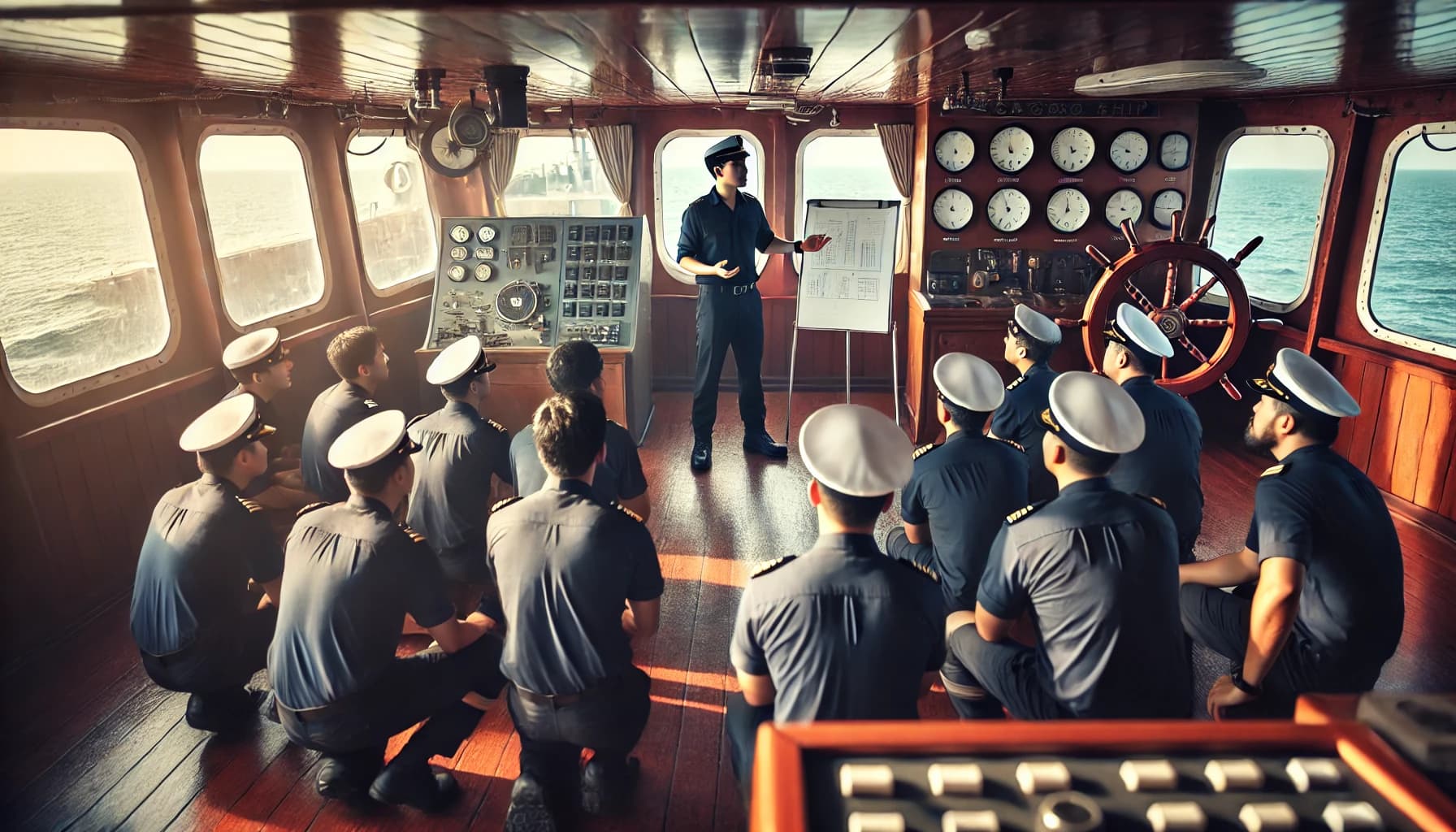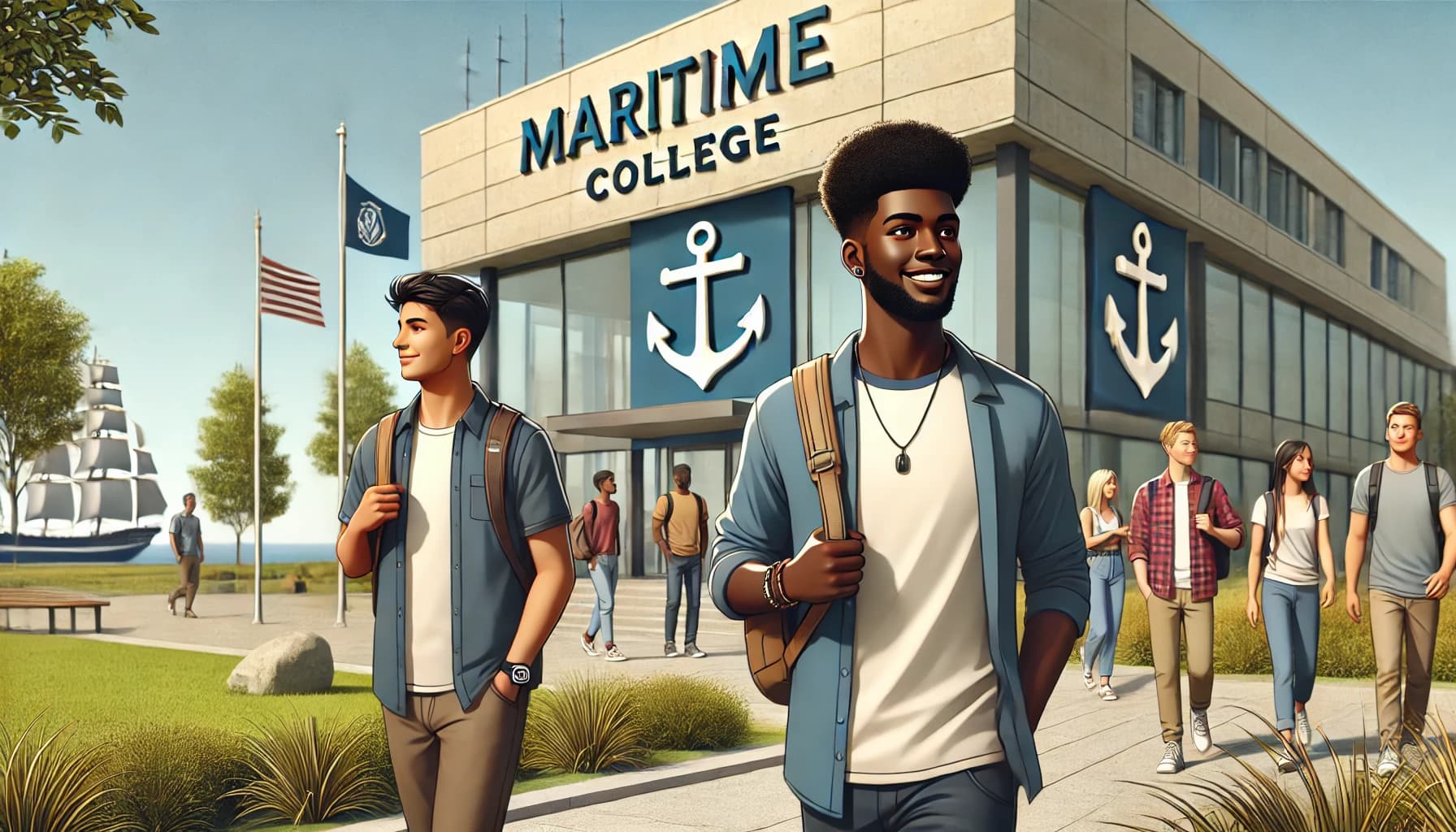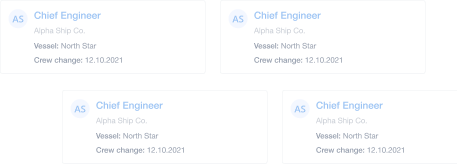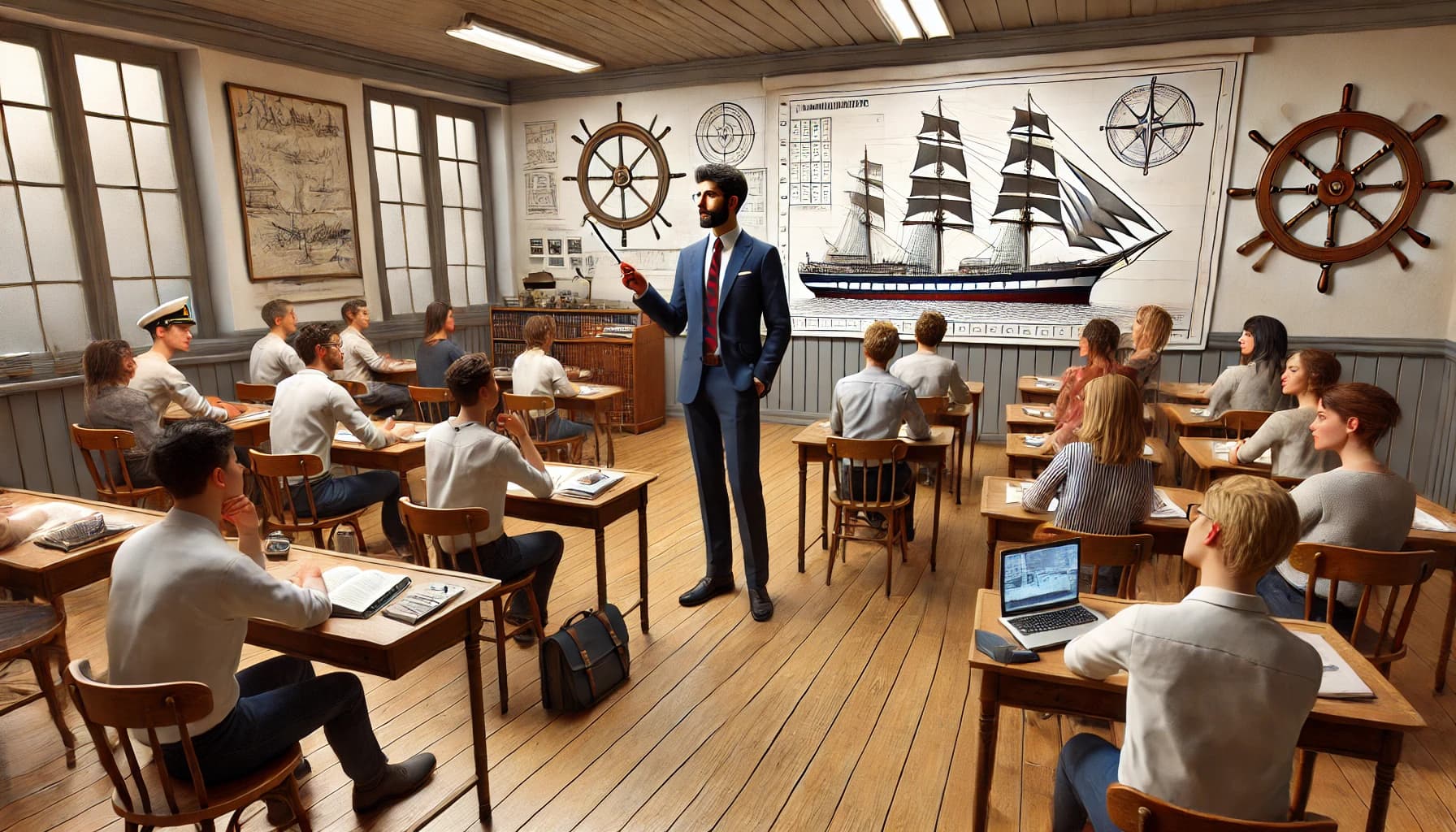What to Do When You Can't Find an Entry-Level Seafarer Job
Jun 13, 2024 · 12 mins read ·
Job Seeker Tips
As a Junior Engineer, Deck Cadet or someone else starting out on your career working in seafarer jobs, you might have noticed that the current employment situation in the shipping industry is somewhat precarious.
There are various factors that are contributing to the shortage of seaman job opportunities for young seafarers and cadets and despite the construction of new vessels and the emergence of new shipping companies and manning agencies, as a fresh graduate you may be one of the many who are finding it challenging to get your foot on the maritime career ladder and land a job.
Read more: Everything You Need to Know About Deck Cadet Jobs
So, what does this mean for you if you’re a current student or a recent graduate from a maritime academy? Martide is here to help with some sound advice.
Tackling unemployment when looking for a seafarer job
Whether you’re in your first or final year of maritime college, or you’ve already graduated and are looking for a job at sea, you might be grappling with concerns about job placements. On top of that, overhearing discussions among your seniors and peers often exacerbates the anxiety surrounding unemployment.
The stark reality is that the number of entry-level seafarer jobs has significantly decreased, and fewer companies are visiting maritime academy campuses. Consequently, if you’re a young maritime professional who is looking to embark on your first voyage, the prospects can seem bleak.
However, it’s clear that there are still many jobs on ships available. But - and here’s the but - thanks to the large number of Deck Cadets and Junior Marine Engineers, and even Wipers, Oilers and Messmen competing for these positions, the job market has become highly competitive.

Read more: Everything You Need to Know About Marine Oiler Jobs
So, how can you address this job shortage, handle the competition, and avoid mistakes during your job search?
How to increase your chances of finding a job at sea
Here are some tips that will hopefully help you take the first steps towards a long and successful career in the maritime industry.
1. Keep on learning and building on your skills
With a significant number of other maritime academy graduates flooding the market, what will make you, as a budding seafarer, rise head and shoulders above the rest? Sure, your exam results might be great, but many Crew Managers and Manning Agents are looking for more.
Standing out from the crowd is crucial. Enhancing your skill set - and your seafarer resume - is one way to get you noticed and can even be a deciding factor for an employer.
Think about it from a Crew Manager’s perspective: Who would you choose? A Wiper or a Deck Cadet who simply applies over and over to various companies, or someone who has actively taken on voluntary work, internships or further seafarer training since graduation?
Read more: Advancing Your Maritime Career with Seafarer Training
The goal is to present yourself as a well-rounded individual who is ready and excited to meet prospective employers and show them what you can do. Therefore, the content of your resume for a seaman is critical.
Try engaging with seniors, current officers or engineers, and really make an effort to understand the nature of seafarer jobs, and the discipline and knowledge required. Taking online maritime courses or even in-person seafarer training, can also significantly help in finding a job at sea.

Just because you’ve finished college, it shouldn’t mean neglecting your maritime studies. Shipping company interviews often include technical questions, making it important to keep your knowledge fresh.
For instance, revisiting the book A Seaman's Guide to the Rule of the Road periodically is beneficial. And don't panic, as this doesn't mean undertaking hardcore study, but rather an occasional review of important topics.
In addition, completing all the required STCW training and certification for your rank before applying for seafarer jobs is advisable. A seafarer resume with glaring omissions is not going to make an employer want to get in touch with you.
2. Stay focused and keep your goals in sight
Setting goals, both short-term and long-term, is crucial during your hunt for a job on a ship. For example, some seafarers plan to transition to a shore-based maritime job after a few years at sea.
Planning for a well-paying shore job involves outlining the necessary steps. Meanwhile, other seamen and women might want to pursue further education, such as an MBA in shipping and logistics.
Postgraduate studies require significant research and effort. Choosing the right university, preparing statements of purpose, and securing admission to a reputable institution should be planned well in advance.
Scholarships can provide substantial support, but obtaining one requires proving your worth and working hard.

But regardless of your future maritime career goals, make sure you have a plan, but don’t let it distract you from the task in hand: i.e. finding an entry-level job at sea.
3. Use your people skills and network, network, network!
Networking is perhaps the most crucial aspect of securing a seafarer job today - indeed, who you know can be a huge leap ahead in any industry.
However, networking, schmoozing, or whatever you call it might not seem like something you’d do if you’re looking for a job on a container ship! But don’t dismiss the power of networking.
Professional networking connects you with the right people who can help you find the right seafarer job. While online maritime job portals, such as Martide’s, most definitely have a huge part to play in finding a job at sea, traditional person-to-person connections remain highly effective.
You can also use social networking platforms such as LinkedIn, Twitter (X) and Facebook to find contacts within shipping companies and manning agencies. Reaching out through phone calls, emails, or other means can significantly help in getting your foot in the door.
And don’t forget that some maritime recruiters, like Martide, who advertise jobs at sea for our clients and partners in the shipping industry, also post seafarer job vacancies on social media, giving you the opportunity to spot jobs in your feed while you're on the go and apply for them.
Read more: 6 Steps to Creating a LinkedIn Profile to Find Seafarer Jobs
When you do meet people working in the maritime industry in person, make sure you take their business card or other contact details and follow up with them.

To be brutally honest, you need the job more than the employer needs you so make sure they form a great impression of you and know that you are someone who is polite, professional and proactive. The three P’s, if you will!
Continuous self-promotion and projecting yourself as a worthy candidate is important. Networking showcases the side of you that is hard to get across on a seafarer resume - i.e. your people skills, which are vital in the shipping industry.
After all, no employer wants someone onboard one of their vessels who clearly won’t be able to get along with other crew members.
Read more: 5 Ways to Improve Life Onboard by Being a Better Crewmate
And one other professional tip, that applies for both online and in-person networking, during personal interactions, it's important to focus on conversation rather than being results-oriented otherwise you'll come across as pushy or insincere.
4. Stay positive - you’ll get there!
We mentioned the ‘3 P’s’ above: politeness, professionalism and proactiveness but let’s add another one to that. Positivity.
We know it can be hard to feel like you’re constantly chasing entry-level seafarer jobs, only to be told the vacancy has already been filled. And with so much negative talk about unemployment in the shipping industry and the difficulty of finding work on a ship for Deck Cadets, Junior Engineers and other young seafarers, it can be easy to feel unmotivated and despondent.

Read more: How to Stay Motivated When Searching for a Maritime Job
And this will only come across in the interactions you have with Manning Agents and Crew Managers.
Therefore, it’s essential to take a step back, stop worrying about things beyond your control, and start focusing on what you can do to find a career in the maritime industry.
And maintaining a positive attitude is a vital part of that.
It is crucial to understand that seafarer job opportunities in the maritime sector haven't vanished overnight so, as a budding seafarer, concentrate on your employability, continue to upgrade your skills, understand the importance of networking, and treat the job search as a full-time job in itself.
Are you looking for entry-level jobs at sea?
As a prospective seaman or woman, it's important to recognize that both aptitude and attitude are key to securing an entry-level job on a ship.
Graduates from maritime academies are still being hired, and jobs are still available, although, admittedly, it has become more challenging to find a seafarer job straight away.
We advocate for staying proactive and positive by putting your free time after graduating to good use. Here are some ways you can do that:
- Build and refine your seafarer resume and send it to as many different shipping companies and manning agencies as possible.
- Follow maritime recruiters, manning agencies and shipping companies on social media to see their latest seafarer job vacancies. (Top tip: Martide posts jobs at sea almost daily, so don’t forget to follow us on all of our socials!)
- Google local maritime industry events, such as seafarer job fairs and trade shows and connect with employers in person.
And last, but most definitely not least:
- Sign up for a free Martide account and create your seafarer profile. Then you can apply for any of our vacant jobs at sea and Crew Managers and Manning Agents will be able to reach out and get in touch with you directly if they think you will be suitable for one of their vacancies.
We know that finding an entry-level job at sea can be tough but we hope that our tips and advice are helpful. Once again, don’t forget to create a Martide account, as this will give you direct access to potential employers and seafarer job vacancies - and we hope to see you onboard soon!

Eve Church
Eve is Martide's content writer, publishing regular posts on everything from our maritime recruitment and crew planning software to life at sea. Eve has been writing professionally for more than two decades, crafting everything from SEO-focused blog posts and website landing pages to magazine articles and corporate whitepapers.
UK



